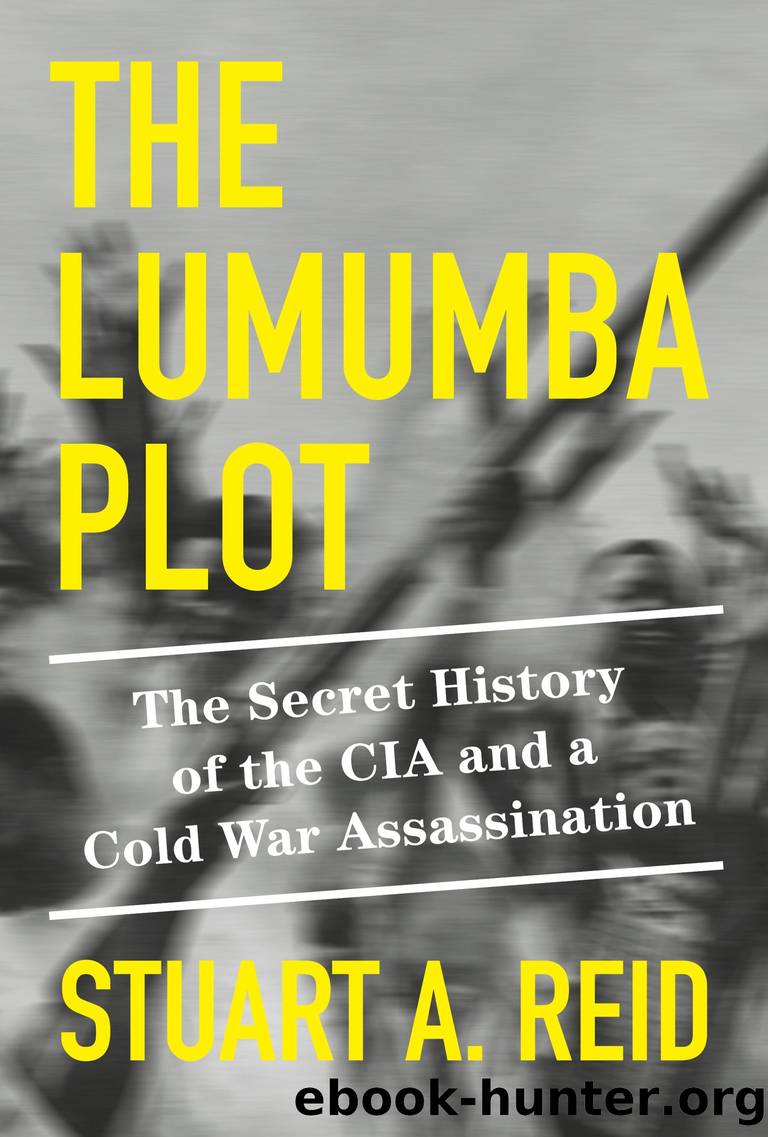The Lumumba Plot by Stuart A. Reid;

Author:Stuart A. Reid; [Reid, Stuart A.]
Language: eng
Format: epub
Publisher: Penguin Random House LLC
Published: 2023-10-17T00:00:00+00:00
Chapter 43
Comeback
President-elect John F. Kennedy rang in 1961 by busying himself with the transition. He set to work on his inaugural address, dictating passages to his secretary while flying to Palm Beach and revising the speech on yellow legal pads at his fatherâs villa there. He pondered policy, too. One major decision he had to make concerned Africa. At the beginning of December, in an early appointment intended to signal the priority he would give the continent, Kennedy had named G. Mennen Williams, Michiganâs progressive governor, as the State Departmentâs top Africa official. Chester Bowles, the former ambassador to India and friend of Dayalâs, earned the number-two spot at Foggy Bottom, while another progressive, Adlai Stevenson, the two-time Democratic nominee for president, was announced as ambassador to the UN. All were willing to prioritize support for African nationalism over relations with Europe. All rejected a gradual approach to decolonization. All favored a strong UN.
Building a concrete action plan on these general principles was a different matter. Kennedy knew he wanted to side more openly with African aspirations than Eisenhower had, and he thought there should be more Black Foreign Service officers, but beyond that, many details remained unanswered. Most pressing of all was the question of how he would approach the Congo, which was now on the brink of civil war. Would he be wedded to the Eisenhower administrationâs policy of backing Mobutu and Kasavubu and rejecting Lumumba?
To inform his decisions, Kennedy met with Dag Hammarskjöld at the Carlyle Hotel in New York. He also asked his younger brother Ted, then a twenty-eight-year-old recent law school graduate, to tag along with a delegation of Democratic senators on a two-week, ten-country Africa tour in December. The group was warmly welcomed, in large part because word had spread that the incoming American president had been an early supporter of Algerian independence. At stop after stop, crowds chanted, âKennedy! Kennedy!â
In Leopoldville, the group met with Clare Timberlake, Larry Devlin, Mobutu, and several commissioners, but also with Rajeshwar Dayal, who judged the delegates somewhat receptive to his positions. They publicly pledged âfull supportâ for the UN operation and, in a first for the U.S. government, urged the release of political prisoners in the Congo. In an interview with The New York Times after the trip, one of the senators, Frank Moss of Utah, promised a sharp break with Eisenhowerâs policies, noting that most Congolese supported Lumumba and opposed Mobutu. (Weeks later, Ted Kennedy even told the press of his impression that Kasavubu was a âtoolâ of the CIA.)
The outlines of Kennedyâs Africa policy were taking shape. On his desk lay a small book of a report on the continent, written by a task force he had set up after his election. It began boldly: âAfrica has been all but decolonized. In important respects, our African policy has not.â On the Congo, the authors warned against an oversimplified âneat pro-Communist vs. anti-Communist frame.â Of Lumumba, they noted that, although âunstable,â he remained âa symbol of parliamentary legitimacy to many Africans both in and out of the Congo.
Download
This site does not store any files on its server. We only index and link to content provided by other sites. Please contact the content providers to delete copyright contents if any and email us, we'll remove relevant links or contents immediately.
| Central Africa | East Africa |
| North Africa | Southern Africa |
| West Africa | Algeria |
| Egypt | Ethiopia |
| Kenya | Nigeria |
| South Africa | Sudan |
| Zimbabwe |
Goodbye Paradise(2966)
Men at Arms by Terry Pratchett(2407)
Tobruk by Peter Fitzsimons(2062)
Pirate Alley by Terry McKnight(1910)
Arabs by Eugene Rogan(1836)
Borders by unknow(1788)
Belonging by Unknown(1467)
The Biafra Story by Frederick Forsyth(1324)
It's Our Turn to Eat by Michela Wrong(1303)
Botswana--Culture Smart! by Michael Main(1238)
A Winter in Arabia by Freya Stark(1225)
Gandhi by Ramachandra Guha(1196)
Coffee: From Bean to Barista by Robert W. Thurston(1181)
Livingstone by Tim Jeal(1152)
The Falls by Unknown(1142)
The Source by James A. Michener(1135)
The Shield and The Sword by Ernle Bradford(1101)
Egyptian Mythology A Fascinating Guide to Understanding the Gods, Goddesses, Monsters, and Mortals (Greek Mythology - Norse Mythology - Egyptian Mythology) by Matt Clayton(1088)
Africa: Altered States, Ordinary Miracles by Richard Dowden(1078)
